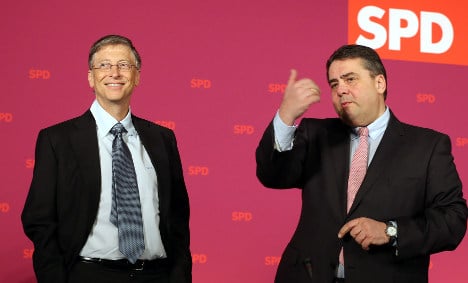SPD lead Sigmar Gabriel said at the meeting he stood behind the European Union plan to invest 0.7 percent of gross domestic product (GDP) in development policies.
Microsoft founder Gates, one of the world’s richest men, has long focused his efforts on the Bill and Melinda Gates Foundation which funds health and education projects around the world.
He was invited to the Potsdam meeting of the centre-left SPD leadership meeting to talk with them about the foundation. He called for Germany and Europe not to abandon their contributions, despite the financial crisis.
Speaking ahead of the meeting Gates said the world was on the brink of great victories in the fight against illness and global poverty. “Germany plays a decisive role in enabling us to bank on success,” he told the SPD paper Vorwärts (Forwards).
“Development aid only counts for a fraction of public spending in most donor countries. Cuts in this area will not solve our budgetary problems,” he said.
He said that great strides had been made in public health matters over the past 20 years – with the number of children dying before the age of five shrinking from 20 million in 1960 to less than 6.9 million in 2011.
But enormous differences remained. “We still have a long way ahead of us to ensure that every child that is born has the same chance of a healthy life regardless of whether it is born in a rich or a poor country,” said Gates.
DPA/The Local/hc



 Please whitelist us to continue reading.
Please whitelist us to continue reading.
Member comments